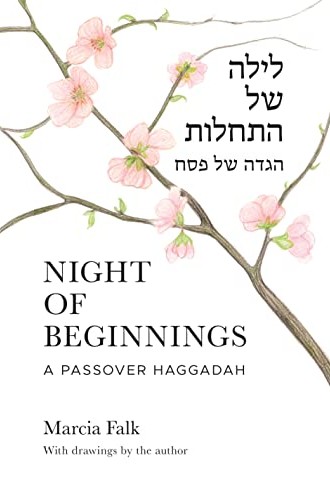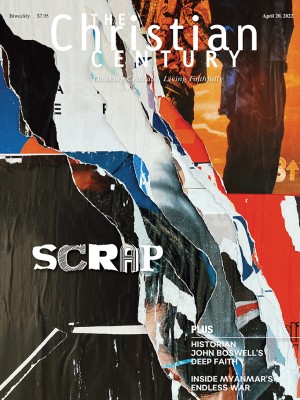Giving women a voice at the seder table
Poet and liturgist Marcia Falk attempts to correct the gender bias of the traditional Passover Haggadah.
The story of the children of Israel’s exodus from Egypt begins when Miriam, daughter of Yocheved, saves her baby brother Moses by placing him in a basket and floating it on the Nile to be picked up by the daughter of Pharaoh. Thus we could say that without Miriam and her female associates there would be no Jewish people. We might also conclude from this that the prayers, stories, and readings featured in the Haggadah—the text that traditional Jews read each Passover festival—would feature women in all their glory. But a glance at the Haggadah reveals a picture that almost obliterates women.
According to traditional tropes, it is the youngest son who asks four questions, followed by responses from four different sons, five famous rabbis, and the maggid (a male speaker), who relates parts of Jewish history, beginning with Abraham (but not Sarah). Even though the women in the family have probably prepared the festive meal for the evening, their role in the proceedings of the central text of the night is minimal at best.
Read our latest issue or browse back issues.
Poet and liturgist Marcia Falk attempts to correct the gender bias of this ancient text by providing a feminist version of the Haggadah. A professor of Hebrew and English literature, Jewish studies, Bible, and creative writing, Falk is also the author of feminist versions of the blessings and rituals used for daily prayer, sabbath observance, and the high holy days. In Night of Beginnings, her name for the Hebrew God is variously “wellspring of life” (eyn haḥayim) or “flow of our lives” (ma’yan ḥayéynu). These terms are certainly more visceral than the abstract noun that traditionalists prefer. Falk’s métier is to utilize nature as her ground, bringing the pulsating presence of the Divine to the reader.
Falk brings portions of her groundbreaking poetic translation and commentary on the Song of Songs (1977) into this new Haggadah to be recited alongside the more traditional texts. Although Night of Beginnings is a truncated version of the traditional Haggadah, it preserves the outline of the original, amplified by some of Falk’s own inspired poetry as well as feminist tropes, relevant biblical quotes, and explanations of the text. The book is decorated with her own drawings and paintings of flowers throughout. While the central text is provided in Hebrew, English, and a transliteration for non-Hebrew speakers, all of the commentaries are in English.
Falk quotes with approval an observation of Rabbi Akivah, one of the most important rabbis from the time when the Haggadah was being formulated. “Israel,” he avers, “was redeemed from Egypt on account of the righteous women of that generation.” Thus Falk changes the original four sons who ask the questions at the beginning of the seder to two sons and two daughters, and she adds a “cup of Miriam” to the traditional four cups of wine that are imbibed over the course of the evening’s celebration. This cup, which is filled with spring water, is there “to celebrate women’s places in the tradition.” Falk also transforms the ritual of opening the door toward the end of the seder into an invitation to all strangers, much like Abraham and Sarah’s offer of hospitality in Genesis 18.
One of my students is an Anglican priest at Christ Church in the Old City of Jerusalem, and his life’s work is to explore the Jewish roots of Christianity. I imagine he will find this book illuminating. For traditionalists and newcomers, for Jews and non-Jews alike, Falk’s Haggadah is as fine a way as any to experience a spiritually uplifting burgeoning of spring, complete with a retelling of one of the central and universal narratives of our shared civilization.







